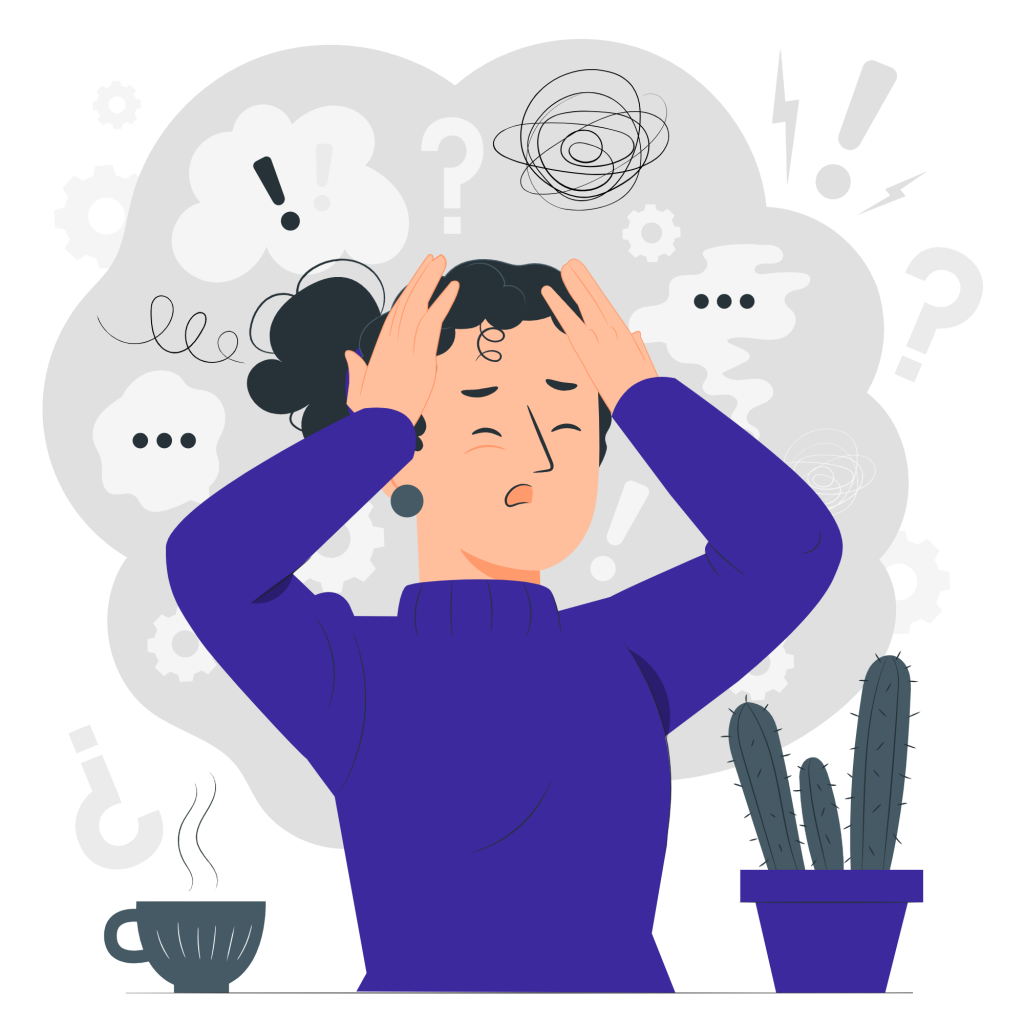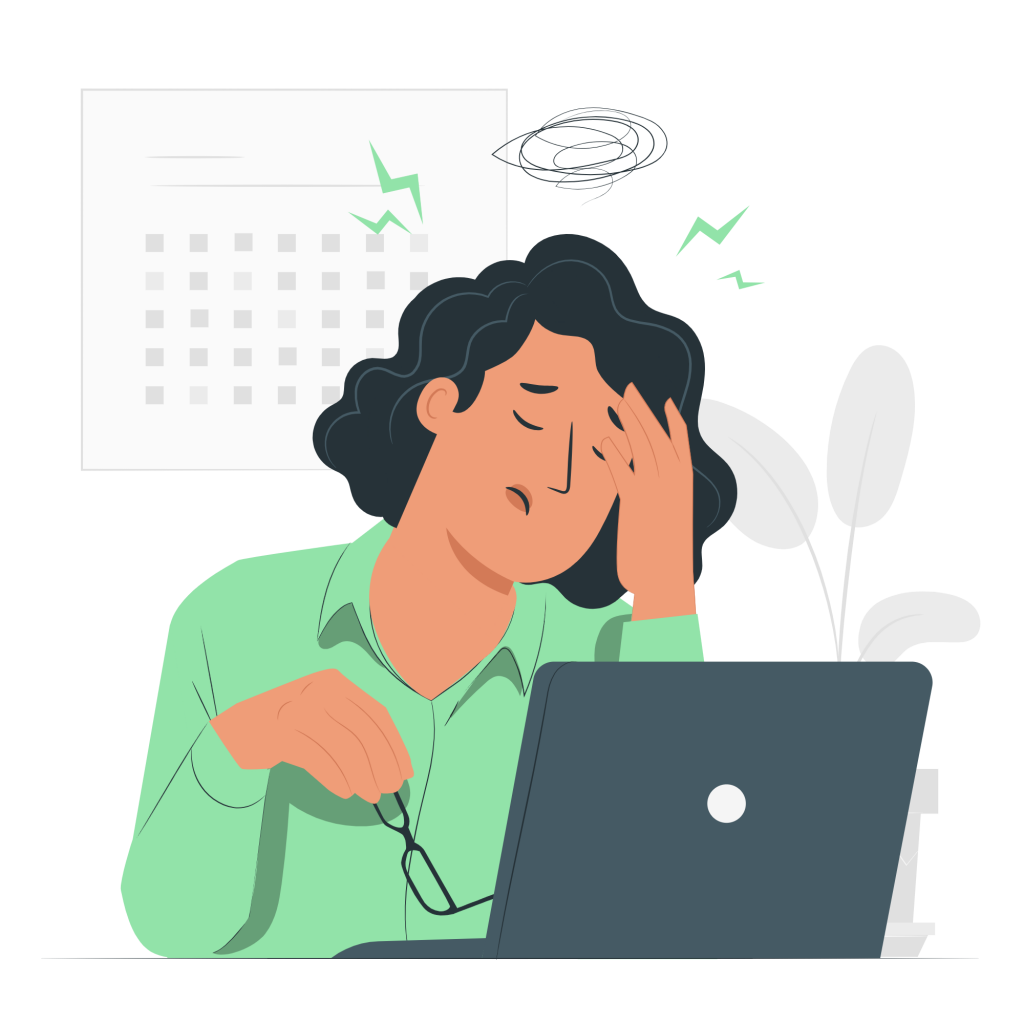Anxiety Treatment
Feeling anxious is quite a common thing that an individual experiences in their life from time-to-time. But if it is felt more often than not, then it is an abnormal thing. Anxiety, simply put is, “fear of fear”. It is a condition in which a person is tensed and feels afraid without the obvious reason behind it. An anxious person always feels threatened even though they are safe and there is no such potential “threat”.

Symptoms of anxiety
Muscle tension, body pain, shivering, dizziness, elevated heart rate, dry mouth, heavy breathing, diarrhea, nausea, excessive sweating, palpitation, etc.
Failure in functioning areas such as social, occupational and others
Clinginess or dependency
Impaired concentration, bad memory, confusion, etc.
Sometimes, these symptoms may also be seen if you’re put in stressful situations such as threat by competition, peer pressure, moments before exam, during interviews, accidents, first dates, etc.
Over the time, if your anxiety has become uncontrollable and severe than usual, then you need to take measures. The condition becomes abnormal when:
- It persists even after the stressful event has passed
- It occurs for no reason
- It causes excessively intense worry about day-to-day situations
Types of Anxiety Disorders
There are multiple types of anxiety disorders that are defined by psychologists. These comprise of Phobias and Disorders.
Social Phobia –Most common, it makes you anxious about people’s opinion of you and their judgment. Sufferer avoids socializing, thinking that people might consider him/her as stupid.
Agoraphobia –Fear of open spaces or public places like trains, planes, buses, bridges, lifts, cinema halls, restaurants, etc. This happens when a person thinks that help will not be available easily and escaping won’t be possible.
Other phobias – Claustrophobia (fear of closed spaces) and fear of different things like animals, injections, etc.
Panic Disorder –Recurring panic attacks with all the physiological symptoms.
Generalized Anxiety Disorder –Symptoms include exhaustion, restlessness, feeling edgy, irritability, muscle tension, insomnia and may continue for a long-term.
Mixed Anxiety and Depressive Disorder –Symptoms include feeling sad, guilty, irritated along with low mood, energy levels and sex drive, insomnia, poor concentration and appetite, body aches, etc.
Obsessive Compulsive Disorder –Fears about dirt, germs, contamination, etc.
A single individual can go through multiple types of such anxiety disorders simultaneously and may witness repeated episodes of such feelings. Though, the reactions are different.

Different types of reactions
Acute Stress Reaction: Quick escalation of symptoms which usually comes forth after accidents, bad news, death of a closed one, personal problems, etc. These can last for several days, even weeks. Other symptoms may include poor sleep and concentration, low mood, emotional unsettlement, irritability, to name a few.
Post-trauma Stress Reaction : Life-threatening situations often leads to such a reaction. The symptoms such as recurring thoughts in form of dreams, memories, flashbacks of a traumatic incident, urge to avoid reasons like discussions, places, activities, people etc., that may trigger the thoughts, emotional numbness, detachment, pessimistic view and many others,may last for a month or even more.
Adjustment Reaction : Similar to acute stress reaction, adjustment reaction’s symptoms are the same and persist for many days or weeks. This reaction comes after incidents like a divorce or shifting house.
Causes
Underlying health issues can be the major cause behind anxiety. In a few cases, anxiety is also the first sign of severe medical conditions. Here are a few medical causes behind anxiety disorders:
- Heart problems
- Thyroid
- Asthma
- Diabetes
- Irritable bowel syndrome
- Premenstrual syndrome
Other general causes include:
- Drug or alcohol abuse/withdrawal
- Traumatic events
- Chronic Illness stress
- Family history of anxiety
- Other mental health disorders
However, there are different ways of anxiety treatment which include therapies and medication.
At Psyway, we are one of the most renowned treatment centers for anxiety disorders in Delhi because we combine both these techniques to offer quick and long-term relief. Our doctors make use of different anxiety treatments including therapies such as:
Behavior – For controlling unwanted behavior
Cognitive – For controlling harmful and unnecessary thoughts and gaining a sense of control over oneself
Cognitive-Behavior – Combination of both the above-mentioned therapies
To help you recover quickly, our doctors also prescribe medication in conjunction with the therapies so that symptoms can be controlled when an attack occurs and help is not available easily. Other than these, we also help our patients to lead a normal life, by preparing a healthy daily routine for them, suggesting lifestyle changes etc.
It is our panel of experienced psychologists and state-of-the-art facilities that have helped us set new benchmarks in anxiety treatment and become the most-trusted hospital for anxiety treatment not only in Delhi but all across the country.
Every year, we see and treat cases with different level of complexity at our anxiety treatment center in Delhi. We are well-equipped to help you restore normality in your day-to-day functioning.
